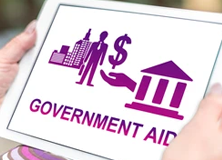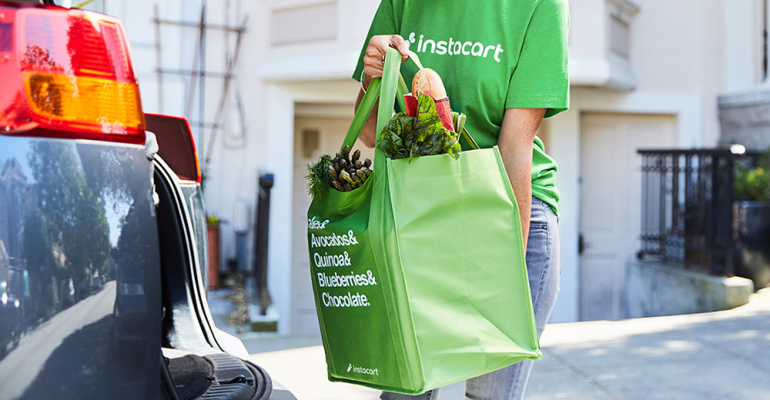Cash Assistance Programs in New Jersey
Cash Assistance Programs in New Jersey
The heightened health risk brought about by the Covid-19 pandemic has resulted in a massive economic depression across the globe. The widespread health crisis caused sharp inflation, exceedingly high interest rates, and a constant hike in basic supplies and asset prices. The livelihoods and financial sustainability of the vulnerable population are greatly threatened.
Governments, working alongside worldwide policymakers, are trying their best to mitigate the adverse impact of global economic fallout by creating various programs to increase support for the well-being, overall health, emergency preparedness, and financial security of every household.
The State of New Jersey offers different eligibility and welfare programs in the United States to provide extra help for its residents as they continue to face the pandemic’s cascading impacts.
Here are some of New Jersey’s available financial assistance resources:
Work First New Jersey (WFNJ) Program
As per the Work First New Jersey Act, the State of New Jersey created the WFNJ Program. This program is New Jersey’s equivalent to the Temporary Assistance for Needy Families (TANF) Program. TANF aims to provide temporary financial help to eligible families with children by nurturing the importance of employment and child support in the household. By providing them with occupation, parents and guardians learn to be self-sufficient and responsible for supporting their children’s needs. The program generally helps improve families’ economic status through job preparation and promotes responsible parenting.
The agency tasked to spearhead the WFNJ Program at the State level is the Department of Human Services. In addition to cash assistance, WFNJ also provides various family benefits while maintaining employment, such as health care coverage, food assistance, parenting, and nutritional education services.
Who are eligible recipients of the WFNJ benefits?
Eligible Families
Under WFNJ/TANF, cash assistance is provided to one-parent families with child/ren aged 18 years old and below or with child/ren under the age of 19 who is a full-time student and is expected to complete a vocational course before reaching age 19. Families with children up to age 21 are eligible if enrolled in a special education program.
Also, New Jersey maintains a state-exclusive program for two-parent families who do not meet the WFNJ/TANF program requirements. Federal funds solely provide benefits through State funding.
Minor Parents
Parent participants who are less than 18 years old may be eligible for TANF if they meet the following requirements:
- Not married
- Biological parent of dependent child/ren
- Legal guardian of dependent child/ren
- Reside in a home owned or maintained by the individual’s parent, guardian, or adult relative
- Regularly attend high school or
- Engaged in a work activity for those who attained secondary education
Non-citizens
WFNJ is also extended to eligible non-citizens or qualified immigrants. The following individuals are considered “eligible non-citizens”:
- Legal permanent residents
- Refugees
- Asylees
- Conditional entrants
- Non-citizens who are paroled in the US for at least one year
- Non-citizens whose deportation has been withheld
- Non-citizen spouses
- Non-citizen children
- Non-citizen victims of family violence
- Non-citizen parents of child/ren victim/s of family violence
- Cuban/Haitian entrants
However, non-citizens who entered the US on or after August 22, 1996, are prohibited from receiving WFNJ benefits for their first five years of stay with the following exceptions:
- Veterans
- Persons on active US military duty
- Spouses and unmarried children of persons on active US military duty
- Refugees
- Asylees
- Non-citizens whose deportation has been withheld
- Cuban/Haitian entrants
What are the requirements?
WFNJ applicants must:
- Obtain Social Security Numbers
- Complete the identification requirements
- Cooperate with child support enforcement orders and work requirements
- Be income and resources eligible
- Provide all necessary documentation
- Sign an Agreement to Repay benefits upon receipt of lump sum income or resources; and
- Satisfy any sanction or repayment obligation to any Federal or State public assistance
How do I apply for WFNJ?
Claimants may file applications directly through their local social services or family assistance agencies, but they can also apply online via the Official Site of the State of New Jersey. There’s also a tool that claimants can use to prescreen their eligibility for other government assistance. This tool can be accessed via NJ Helps official site. Once approved, the applicant receives the benefits through an issued card that acts as a prepaid debit card and can be used at merchant POS terminals and ATMs.
How much cash do recipients get?
A family can claim as much as $559 cash assistance per month for a total of 2 consecutive years. As a recipient, a claimant can also receive up to $100 child support per month.
How long does it get?
Typically, the application process takes about thirty (30) days from the submission date of complete application requirements.
Do the recipients need to pay the money back?
The answer is no. The New Jersey WFNJ program supports low-income families and teaches them to recognize their responsibilities for child support. The livelihood and employment are offered free, but claimants must participate in the employment training. Also, WFNJ benefits are reduced when parents increase their earnings from employment. The TANF benefits will be terminated when parents save more than $2,000.
2. Supportive Assistance to Individuals and Families (SAIF)
New Jersey's NATF services are limited to five years. Consequently, claimants may obtain Supportive Assistance to Individuals and Families (SAIF).
This government program aims to provide a buffer to families whose five-year limit on WFNJ has been exhausted and who did not qualify for the exemptions to the time limit.
Exemption Eligibility
Eligible exemptions are the following individuals:
- Permanently disabled
- Solo caretakers of a disabled dependent
- Chronically unemployed with more than 60 years of age
- Victims of family violence
An applicant that did not qualify for the time limit exemption may still qualify for SAIF. Under this program, they must participate in work activities under close coordination with a case manager. Individuals approved of this grant may still receive cash assistance plus additional support services
How to apply
To apply for services offered by SAIF, individuals must submit their applications through the Country Welfare Office, otherwise known as the County Board of Social Services, or through their Municipal Welfare Office. Once approved, applicants may receive up to 24 months of cash assistance and additional services like childcare, transportation, mental health services, and substance abuse treatment if needed. Accepted claimants to the program are expected to cooperate with their case manager.
3. Supplemental Security Income (SSI)
Under this unique Federal Social Security Administration program, persons over 65 years of age, disabled and blind, with limited income and resources, are granted monthly payments. The project’s goal is to provide cash assistance to WFNJ recipients who are deferred from work for at least 12 months and those who participate in Emergency Assistance Pilot for the Chronically Impaired.
What are the eligibility requirements?
To qualify for SSI, one must have little to no income and/or the value of the resources owned is not more than $2,000 for single and not more than $3,000 for married individuals living together. The value of the house where the applicants live is not counted. Moreover, WFNJ recipients may be eligible for SSI benefits.
- Other requirements are as follows: Must live in the United States or the Northern Mariana Islands
- If not a US citizen, should be lawfully residing in the US
How to apply?
One must apply for any other government assistance program for which they are eligible before applying for SSI. Individuals may call the Social Security Administration at 1-800-772-1213
What can you get as an SSI recipient?
SSI recipients may be granted the following benefits:
- Automatically get medical assistance
- Enjoy additional help through Food Stamps or Supplemental Nutrition Assistance Program (SNAP), where they can buy more food without spending money.
- Receive additional social services such as but not limited to homemaking and money management services
How much cash assistance can an applicant get?
Depending on the category, SSI recipients may receive varying payment amounts.
Below are the categories with corresponding total monthly payment:
- Person living alone - $827.25
- Person living alone who is not eligible for SSI - $993.99
- Person living with and receiving support from someone else - $604.98
- Person living in a licensed residential health care facility - $1,051.05
- Person living in a general public hospital - $50
- Couple living alone or with others in own household - $ 1,286.35
- Couple living in someone else’s household and receiving support and maintenance - $ 933.75
- Couple living in a licensed residential health care facility - $1,999.35
4. Emergency Assistance
WFNJ recipients may also receive Emergency Assistance in certain situations. This program provides essential needs such as shelter, food, clothing, and other household utilities and may include temporary rental assistance, transitional housing, transportation, and moving payments. Emergency assistance, although with specific extensions, is limited to 12 months only.
Who are eligible recipients of Emergency Assistance?
Individuals eligible to receive Emergency Assistance include the following:
- Homeless
- At the immediate risk of being homeless
- Persons who experience loss of housing due to calamities and disasters such as but not limited to fire, flood, and typhoon

 2022-07-07
2022-07-07
 2022-10-04
2022-10-04